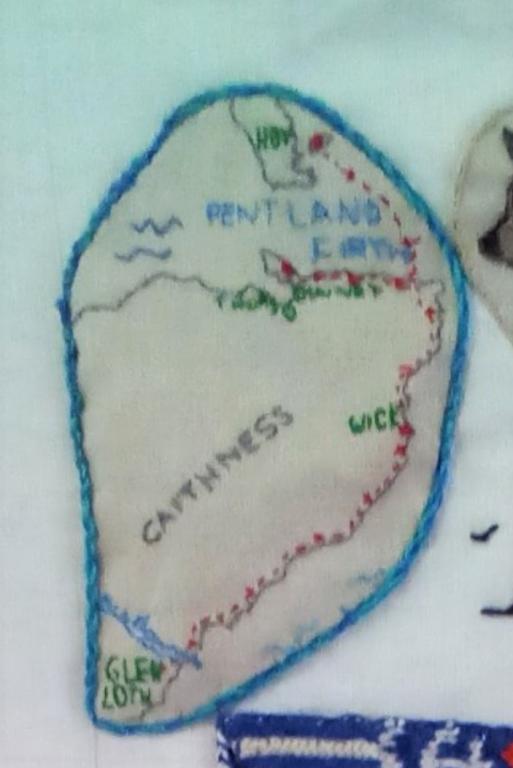
From Glen Loth to Dunnet Head
By Angela E Lewis
 A tribute to the incredible journey of Annie Maclean Calder
A tribute to the incredible journey of Annie Maclean CalderImage provided by Angela E Lewis
As a child, I was fascinated when Granny would call to my father - "Chon, are you ready for yer piece an' cham?"( John, are you ready for a jam sandwich?) Mum was back home on the northernmost shore of Caithness, looking over to Hoy, Orkney – but her voice was different to her mothers. Why did Granny speak like that? A good few years later, I fulfilled the promise I had made to myself, aged 11, and "came home for good" - not only "grown up" but retired! And then, knowing of my interest in family history, my aunt by marriage asked "Why did your Granny have Maclean as a middle name?" It was just the prod I needed. Having studied our Calders, Coghills and Gunns- good Caithness names - I had forgotten that, like all trees , there are very many branches and twigs! Who taught Granny to speak? Maclean is a West Highland name and the absence of the letter “J” seemed to be reminiscent of the Gaelic language ; place names like Thurso, Scrabster, and Wick in the far north are derived from the Norse. We are Viking descendants!
Oral history here is still strong – the “old man” spoken of by Granny’s son was a ship captain born in 1802 – but still no Macleans. Instead, the answer came from the censuses of 1841 – 1921 on ScotlandsPeople and the transcriptions in the Brora museum. Granny’s granny had indeed been a Gaelic speaker but had been “cleared” from Loth and Kildonnan, to make way for sheep. She walked the 80kms to John O’Groats, marrying in Wick, before the entire family spread along the North Coast . This Journey Stone is in memory of Annie Maclean Calder!
Many thanks to Angela E Lewis for sharing with us the story behind her journey stone, created as part of the Tapestry of the Highlands and Islands.
WHAT IS A JOURNEY STONE?
Prior to the beginning of the stitching of each tapestry panel, each stitcher of the Tapestry of the Highlands and Islands was tasked with telling their interpretation of the 'Spirit of the Highlands and Islands' within a blank outline of a stone. The possibilities were truly endless - is it represented in the land? The people? A historical site? A favourite memory?
In any case, each journey stone represents the connection between each individual stitcher, their story, and their own sense, or 'spirit', of place. Discover more of the stories behind the journey stones of the Tapestry of the Highlands and Islands here.